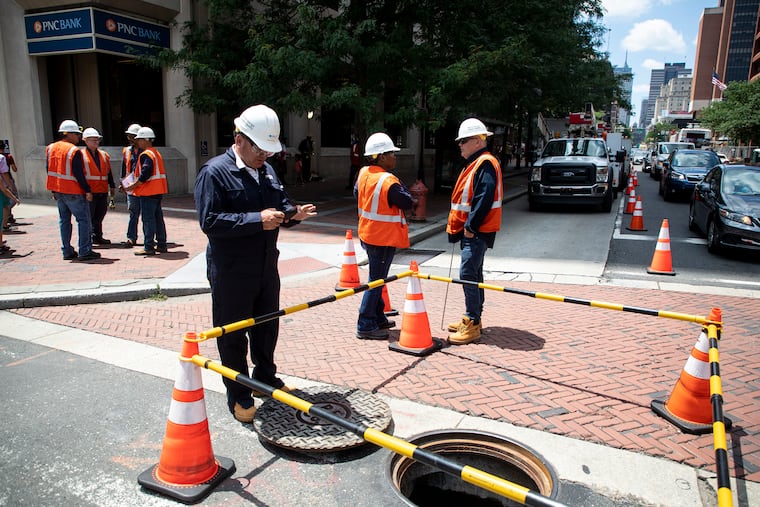Peco seeks electric rate hike that would boost bills by 9.65%, citing grid costs and COVID-19
The Philadelphia utility said the increase is needed to pay for billions of dollars in investment to modernize the grid and meet clean energy demands, including more electric vehicle charging.

Peco, citing the need for “significant” upgrades to the local electric grid and for pandemic-related customer relief, on Tuesday filed a request seeking a $246 million electric rate increase that would boost a typical monthly residential bill by about $9.68, or 9.65%.
The Philadelphia utility, which serves 1.6 million electric customers in Southeastern Pennsylvania, said the increase is needed to pay for billions of dollars in investment to harden and modernize the local energy grid to accommodate clean energy demands, including more electric vehicle charging and solar energy generation in homes and businesses.
As part of its proposal, Peco is seeking $1.5 million of incentives for electric vehicle charging infrastructure to support commercial, industrial, and public transit customers, “with a focus on reducing emissions in disadvantaged communities,” according to a company statement.
The rate hike, which would go into effect on Jan. 1, 2022, would be about 10 times as big as the $24.9 million increase that went into effect in January 2019, the last time the Pennsylvania Public Utility Commission granted the company a rate boost. In 2019, the PUC increased a typical Peco bill by 1.2%, only about a third of its initial request. Utilities, customer advocates and PUC staff typically will negotiate a settlement that reduces the utility’s original request.
“We recognize that the effects from COVID-19 are far from over and that the pandemic continues to impact customers who are struggling financially,” Mike Innocenzo, Peco’s president and chief executive, said in a statement. “However, we’ve seen just how critical it is to have uninterrupted electric service during this challenging time.”
The Peco proposal would provide $2.7 million in bill relief for low-income customers and $1 million in bill credits to qualifying small businesses in low-income communities impacted by the pandemic.
It’s unclear from the initial information provided by Peco how much of the increase is attributable to uncollectible accounts that have soared during the pandemic. Advocates for low-income people say they plan to challenge several utility rate increase requests this year and will ask regulators to force utility owners to absorb some of the costs related to the coronavirus, rather than to recover them from customers through higher rates.
A PUC moratorium on service shutoffs is set to be lifted Thursday. The state has ordered utilities to offer more generous payment terms for low-income customers, though the low-income advocates say 847,000 households are at imminent risk of losing heat, electric, and water service. At the end of February, 146,000 Peco electric and gas customers were at risk of shutoffs. They owed $218.5 million, up 88% from a year ago.
The rate increase would affect only Peco’s distribution charges, which make up more than half of a typical residential bill. The increase would not affect energy charges, which some customers buy from third-party suppliers. Peco adds no markup on energy it buys for default service customers that it supplies.
If approved, Peco said, the typical monthly bill for a residential customer who uses 700 kilowatt hours a month would increase from $100.31 to $109.99, or 9.65%. A typical small-business customer would see a monthly bill increase of about $44.74, or 5.49%.